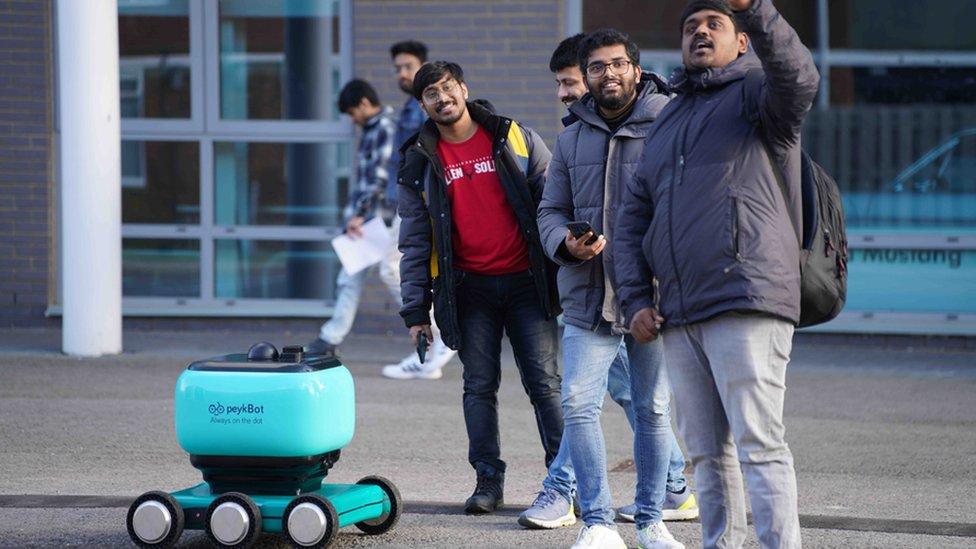Government needs 'commitment' to aerospace - expert
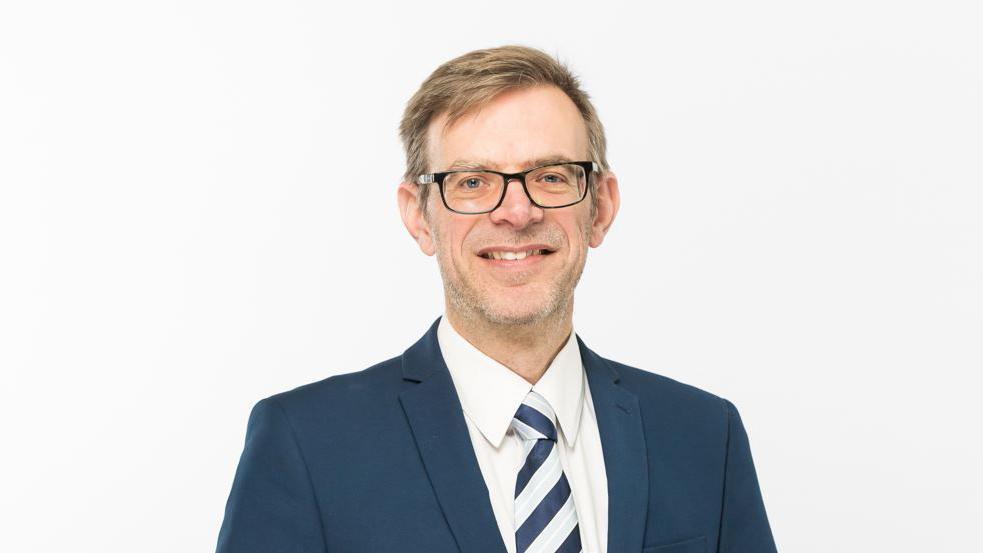
Mark Westwood, professor of aeronautics at Cranfield University, wants "stability" to help with aerospace research
- Published
The next government needs to provide "commitment and stability" to help aerospace research if the UK is to create "high value jobs", a leading aeronautics expert has told the BBC.
As part of a series of election reports called "Race Across the East", BBC Politics East talked to Mark Westwood, professor of aeronautics at Cranfield University, external, Bedfordshire.
In March this year it was announced that Cranfield University had successfully bid for £69m to continue examining how the fuel hydrogen can help meet zero emissions targets.
Mr Westwood said: "Investment in research and development is critical for the UK to build both the knowledge and the skills that will help us to exploit that potential in the future."
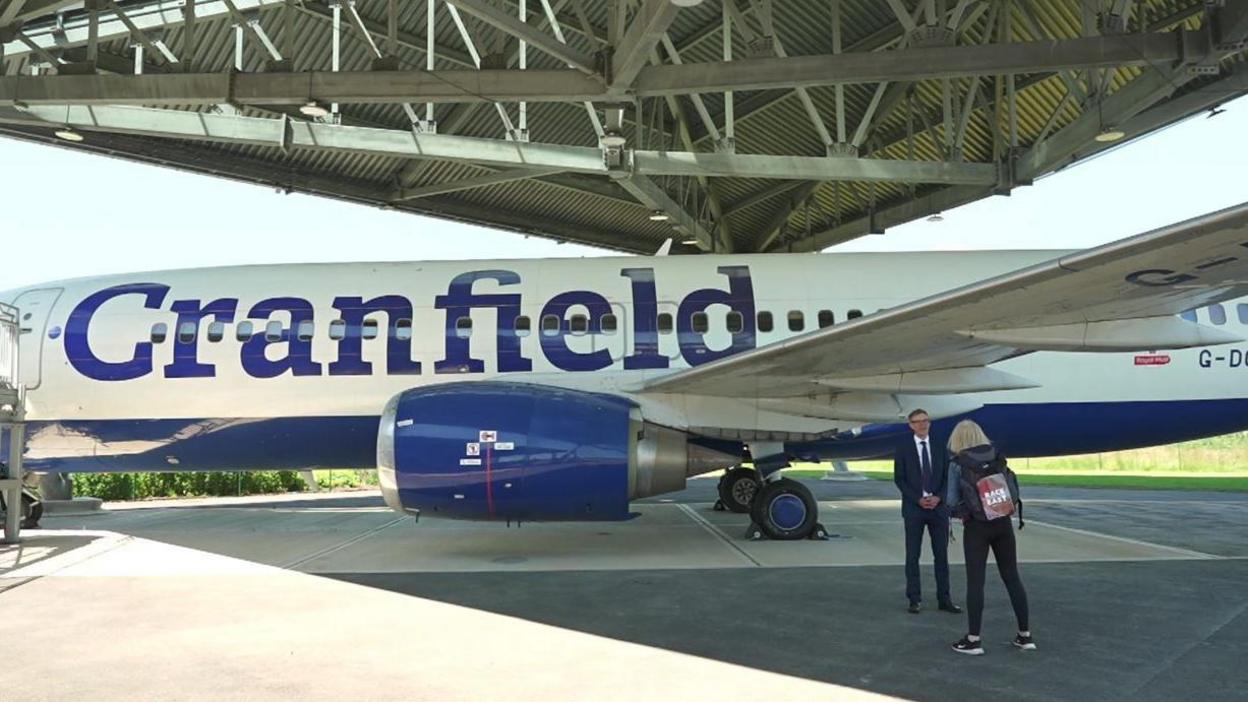
A retired Boeing 737 passenger jet was donated to Cranfield University about 10 years ago by British Airways, and is used as a research and as a training tool
He added: "We know that to save the planet we need to be finding alternatives to the way we fly today and hydrogen is one of those alternatives, but it doesn't have a track record of being used in commercial aviation."
The Conservative government set a domestic aviation target of achieving net zero emissions by 2040 and the Cranfield Hydrogen Integration Incubator (CH2i), funded by the grant, aims to help achieve this.
It will provide an environment to develop the production of technologies as well as storage tanks, aircraft designs and engines that are urgently required to accelerate the adoption of hydrogen in a net zero world.
The project includes building new labs to create an on-site Hydrogen Integration Research Centre.
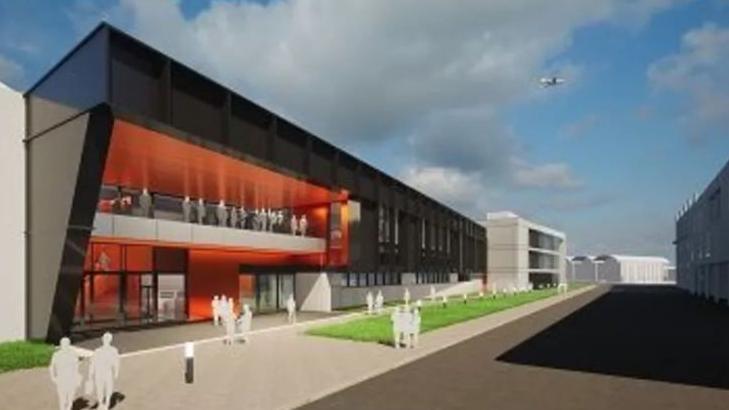
The largest hydrogen research hub at any UK airport will be built at Cranfield University in Bedfordshire
Mr Westwood said the new government needed to provide "commitment and stability".
"That's what aerospace companies are looking for when they are making decisions about where they place their investment in research and development and it is a global competition," he said.
"There are lots of places they can choose, so for the UK it is important to have that commitment to have the stability and have the funding to bring those technologies into fruition and lead to those high value jobs.
"Flying is a really difficult transport mode to decarbonise, and that is a focus of lots of research here at Cranfield.
"We have been leading research into alternatives to kerosene-powered aviation, recognising the impact that has on the environment.
"There are two particular technologies we are looking at: one is sustainable aviation fuel which replaces kerosene in conventionally powered aircraft; the second is hydrogen, which is a different kind of fuel.
"It poses some real research challenges but it also offers us the potential to get to net zero aviation.
"This year we had an award of £69m which is the biggest investment Cranfield's seen... to conduct research into hydrogen - recognising there is quite a lot of technology risk associated with this."
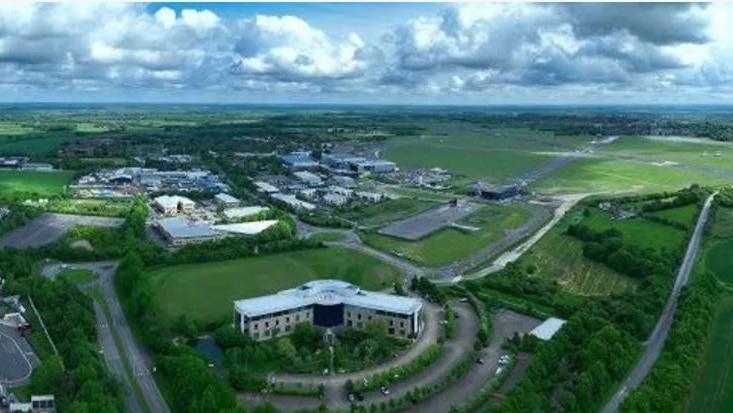
Cranfield University has its own runway
What the parties say
The Conservative Party, external said it would meet its goal of reaching net zero by 2050, but without what Prime Minister Rishi Sunak calls “unaffordable eco-zealotry”.
The party's manifesto says it "will support the growth and decarbonisation of our aviation sector" and added that it would back "investment in future aviation technology".
The Labour Party, external said it would "secure the UK aviation industry’s long-term future, including through promoting sustainable aviation fuels, and encouraging airspace modernisation".
It also aims to "make Britain a clean energy superpower to cut bills, create jobs and deliver security with cheaper, zero carbon electricity by 2030, accelerating to net zero".
The Lib Dems have retained their ambitious net zero target 2045, rather than the 2050 target the Conservatives and Labour say they’ll work towards.
The Party backs a new Net Zero Delivery Authority to coordinate climate action. They are looking at how a "new aviation duty would penalise frequent fliers more heavily".
The Green Party, external said: "Aviation is one of the fastest growing sources of global carbon emissions – and it’s the wealthiest driving this trend.
"Just 1% of the world’s population accounts for more than half of the CO2 emissions from passenger air travel. We need to reduce how much we fly, and we need to do it fairly."
Reform UK, external said: "Net zero is pushing up bills, damaging British industries like steel, and making us less secure.
"We can protect our environment with more tree planting, more recycling and less single use plastics. New technology will help, but we must not impoverish ourselves in pursuit of unaffordable, unachievable global CO2 targets."
BBC Politics East's programme on BBC One on Sunday, 30 June is available on BBC iPlayer.
Follow Beds, Herts and Bucks news on Facebook, external, Instagram, external and X, external. Got a story? Email eastofenglandnews@bbc.co.uk, external or WhatsApp us on 0800 169 1830

Related topics
- Published26 March 2024

- Published17 January 2024
